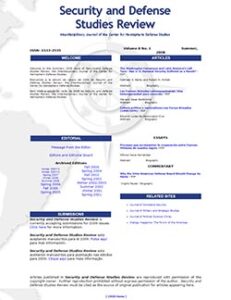In Latin America, where limited probabilities of international conflict are envisioned, the Armed Forces in democratic countries perform multiple tasks. This paper analyzes four of these tasks, leaving aside the traditional mobilization in the event of natural catastrophes: the fight against drug trafficking; the fight against insurgent organizations and terrorism; control of land conflicts; and the protection of government property. When we understand this multiplicity of tasks, we understand that it is essential to keep in mind the complexity of factors that impact on, and interact in, each particular national case. These factors are of a political, historical, geographical and cultural nature, and can be both structural and situational. Ignoring this heterogeneity and adopting positions in standard terms of what "should be" in this area would mean relying on erroneous assumptions and standards.

